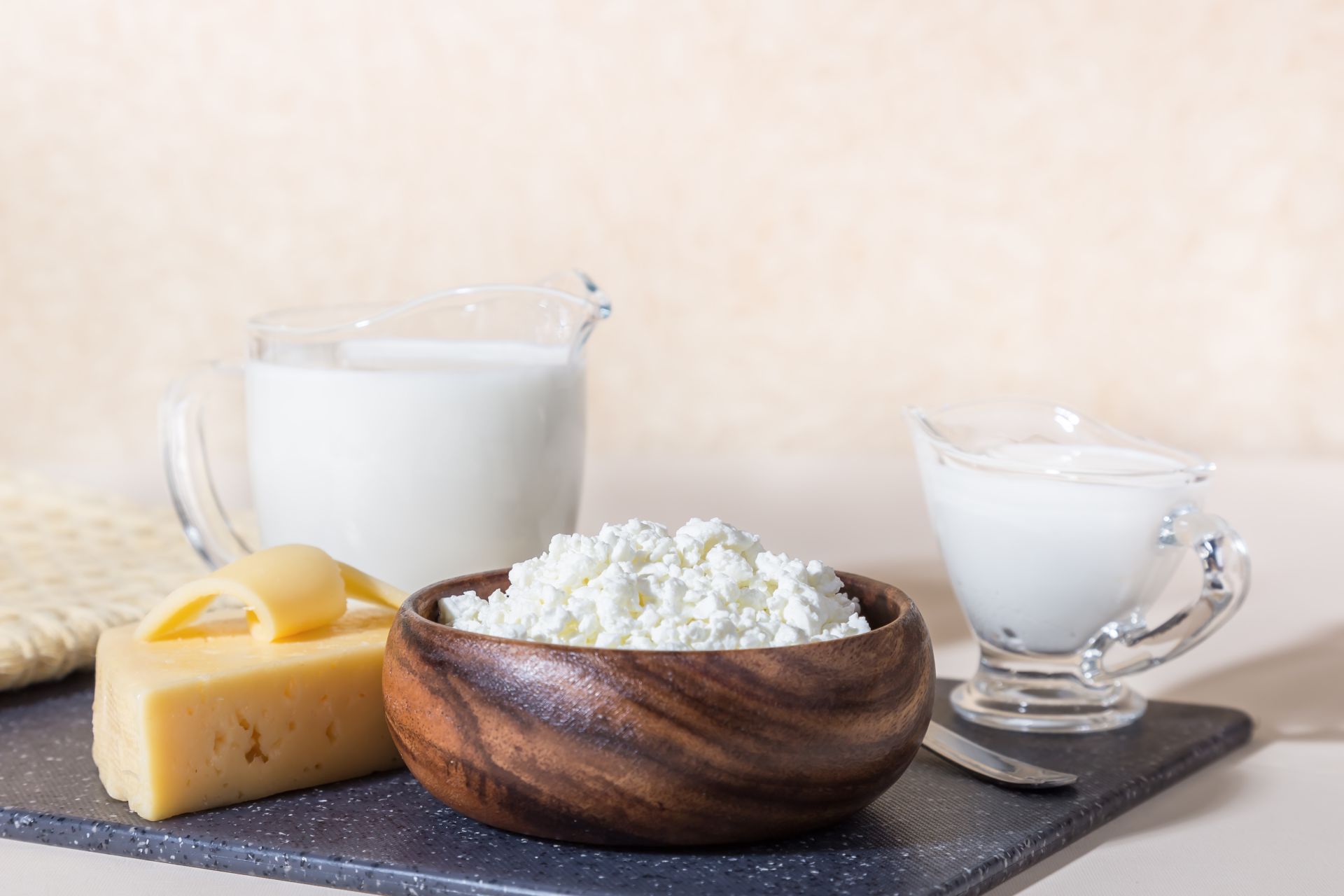Casein as a good source of protein

Adequate protein intake in the diet of regular athletes is a key factor that not only stimulates the development of muscle mass and strength, but also accelerates the rate of post-workout recovery. Milk and its products, especially high-protein yogurts and cheeses, are a very good source of protein and easily absorbed calcium. Let's find out what casein is naturally contained in milk and whether it is a good source of protein for professional and amateur athletes.
- Casein - what is it?
- Casein - where is it found?
- Casein - properties
- Casein - when to use?
- Casein - dosage
- Casein - contraindications
Casein - what is it?
Casein is one of the two proteins that make up milk protein (the other is whey protein). It is the dominant protein in cow's milk, as its content is as high as 80%. Casein is widely known as a protein source that requires a longer digestion time, compared to whey protein. Casein proteins are found in milk in the form of large colloidal particles called casein micelles. Casein micelles form a curd in the stomach both under the influence of the acidic environment (low pH) and the presence of pepsin, an enzyme of gastric juice. Casein can also be isolated from cow's milk to produce micellar casein-based protein supplements, which have been available for many years on the dietary supplement market for both competitive and recreational athletes.
Casein - where is it found?
Casein is naturally found in milk and dairy products, such as yogurts, kefirs, buttermilk, cottage cheeses, cottage cheeses, soft cheeses (including Brie, Camembert, Gorgonzola, Feta, Mozzarella, Ricotta), hard cheeses (e.g., Cheddar, Emmentaler, Gouda, Parmesan) and acidophilic milk. Milk contains both casein and whey proteins, at 80% and 20% of the total protein content, respectively. Compared to whey protein, casein is a slower-digested source of protein, the consumption of which causes a moderate but longer postprandial increase in plasma amino acid concentrations. Milk and its products (including: cheese, yogurt, buttermilk, kefir), which are the only source of casein proteins in the human diet, also provide the largest amounts of well-absorbed calcium in the population of economically developed countries. For this reason, the regular inclusion of dairy products high in protein and calcium in the diet has been recommended for many years to maintain optimal bone health throughout life to reduce the risk of low-trauma fractures. In addition, studies have shown that a high frequency of consumption of milk and milk products can increase bone mineral density in postmenopausal women, so it can protect against the onset of osteoporosis. Consumption of milk and dairy products rich as a source of casein is beneficial for any age group, and even more so for children and adolescents, in whom the development of bone mass occurs dynamically.

Casein - properties
Casein is a good source of protein that supports the development of muscle mass and strength in all people who regularly train at the gym. Despite a slower rate of digestion and absorption, casein helps achieve similar muscle mass-building effects to whey protein when consumed during training. When consumed 30 minutes before bedtime, casein delivers a steady stream of amino acids to skeletal muscles throughout the night, thus accelerating the rate of post-workout recovery and promoting muscle mass development. In addition, casein reduces appetite by increasing the feeling of satiety and delaying the feeling of hunger. Therefore, casein is a good source of protein for people who aim to lose excessive weight and/or have difficulty maintaining satiety between meals. To top it off, casein proteins contain bioactive peptides (known as lactotripeptides), which can lower systolic and diastolic blood pressure values.
Casein - when to use?
Casein is a slow-acting protein that forms a clot in the stomach, delaying the release of amino acids and causing a prolonged but gradual increase in blood amino acid levels. Hence, casein is a good source of protein before bedtime for all competitive and amateur athletes, and even more so for strength and bodybuilding disciplines. Casein consumed before bed can increase the availability of amino acids in the blood plasma during the night, thus stimulating muscle protein synthesis (MPS) and at the same time inhibiting protein breakdown, thus helping to achieve a positive protein balance. Consuming casein before bed seems to mitigate exercise-induced skeletal muscle damage and reduce the inflammatory response, resulting in less muscle soreness. The use of a protein supplement based on micellar casein will be ideal, especially for those regular strength-trainers who have great difficulty meeting their increased daily protein requirements during a period of muscle mass development or fat reduction.
Casein - dosage
The results of previous studies have shown that consuming about 40 g of casein 30 minutes before bedtime can be an effective way to facilitate muscle recovery after evening strength training. Regular consumption of 30-40 g of casein before bedtime can significantly increase muscle protein synthesis (MPS) and metabolic rate throughout the night. In addition, casein consumed 30 minutes before bedtime does not have a negative effect on fatty acid oxidation and the process of lipolysis, i.e. fat breakdown.
Casein - contraindications
It is essential that people who are allergic to cow's milk proteins should refrain from consuming casein. It is indicated that allergy to cow's milk proteins involves only 0.5% of the adult population. Among the most common clinical symptoms of cow protein allergy are vomiting, nausea, abdominal pain, diarrhea, sneezing, paroxysmal dry cough, watery eyes, hives, rash, erythema and itching of the mouth. In addition, people with lactose intolerance and/or gastrointestinal conditions (e.g. irritable bowel syndrome - IBS, small intestinal bacterial overgrowth - SIBO, inflammatory bowel disease - IBD) should avoid consuming dairy products rich in casein and lactose at the same time, as the latter ingredient can cause negative side effects. For these individuals, lactose-free products will work well.
Sources:
-
Antonio J, Ellerbroek A, Peacock C, et al: Casein Protein Supplementation in Trained Men and Women: Morning versus Evening. Int J Exerc Sci. 2017 May 1;10(3):479-486.
-
Kerksick CM, Arent S, Schoenfeld BJ, et al: International society of sports nutrition position stand: nutrient timing. J Int Soc Sports Nutr. 2017 Aug 29;14:33.
-
Glab TK, Boratynski J.: Potential of Casein as a Carrier for Biologically Active Agents. Top Curr Chem (Cham). 2017 Aug;375(4):71.
-
Joy JM, Vogel RM, Shane Broughton K, et al: Daytime and nighttime casein supplements similarly increase muscle size and strength in response to resistance training earlier in the day: a preliminary investigation. J Int Soc Sports Nutr. 2018 May 15;15(1):24.
-
Trommelen J, Weijzen MEG, van Kranenburg J, et al: Casein Protein Processing Strongly Modulates Post-Prandial Plasma Amino Acid Responses In Vivo in Humans. Nutrients. 2020 Jul 31;12(8):2299.



 ⮜ Previous article
⮜ Previous article
Calcium in the human body - why is it so important?
 Next article ⮞
Next article ⮞